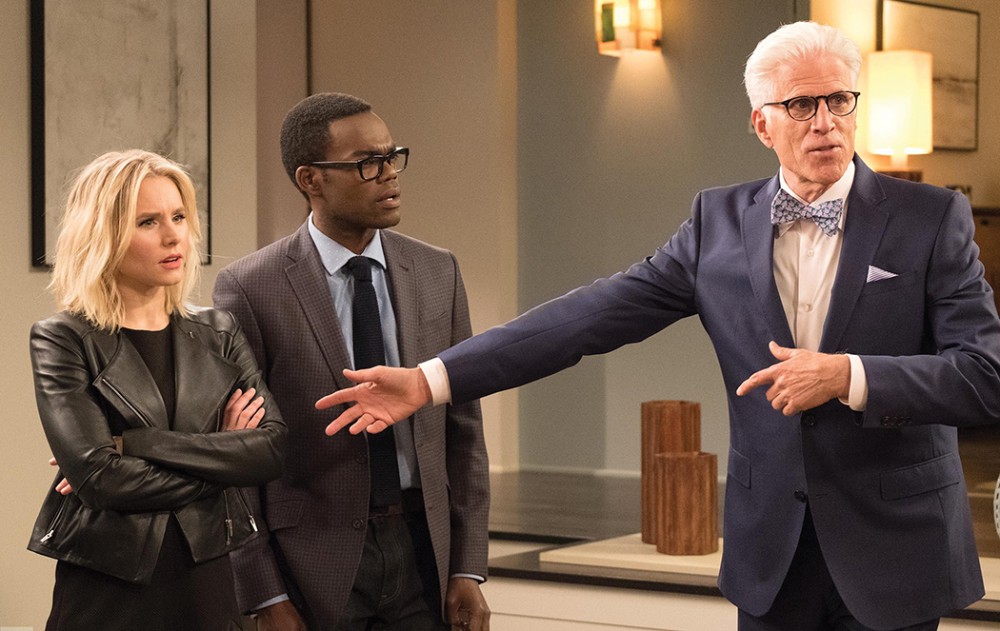The Good Place, a prime-time sitcom full of ethical theory
The comedy series doesn’t feel didactic—despite the fact that it features actual moral philosophy lessons.

Eleanor Shellstrop, the central character on NBC’s The Good Place, was a terrible person. Upset by her sister saying she looked tired, Eleanor posted her sister’s credit card information on Reddit. She threw trash at the feet of an environmental activist and told him to pick it up himself “since he was so in love with the earth.” When her boyfriend suggested they boycott a local coffee shop whose manager was caught on tape sexually harassing a female job applicant, she mocked him so relentlessly he broke up with her. The night she was supposed to be the designated driver, she left her tipsy colleagues stranded at a bar so that she could hook up with the bartender.
When Eleanor dies, it comes as a surprise to her that she ends up in the Good Place. Barely anyone makes the cut, she’s told by Michael, the supernatural architect of the heavenly neighborhood to which she’s been assigned. Almost no artist has ever made it. Florence Nightingale? Nope. The French? Not a one.
It takes Eleanor (played by Kristen Bell) approximately three minutes to realize there has been a mistake. She is not the person they take her to be: a committed humanitarian who devoted her life to the poor, orphaned, and oppressed. This cosmic mistake launches The Good Place, a critically acclaimed comedy, now in its second season (the first season is streaming on Netflix). It also sets in motion the most sustained conversations about philosophical and practical ethics on television.





